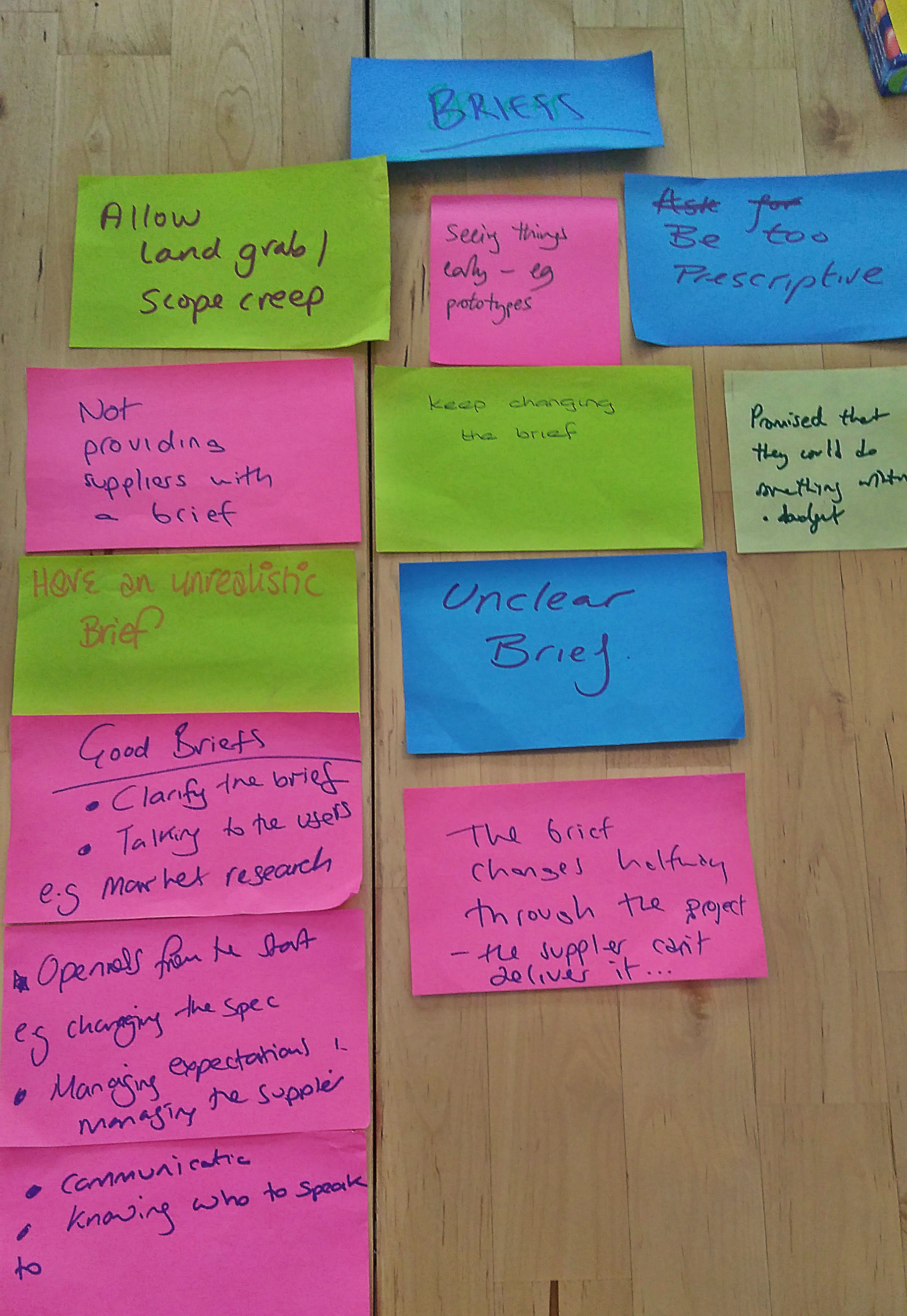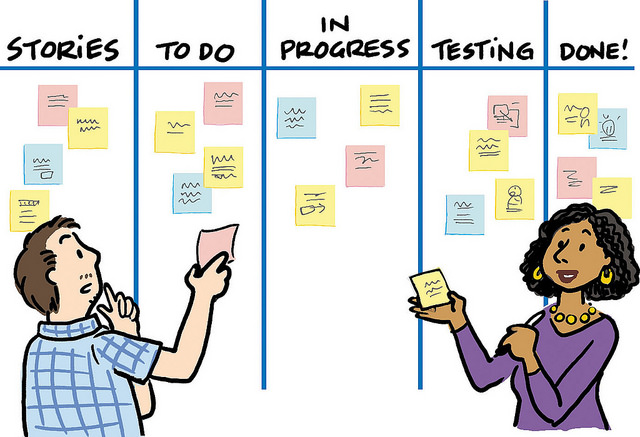Building a collaborative relationship between client and supplier: An anti-pattern workshop
Last week, we headed off to a campsite in Dorset for the very first CommsUnplugged event, keeping our fingers crossed that the rain would hold off for at least most of the day, and luckily we weren’t disappointed.

After a great keynote opener by Giles Henschel from Olives et al and other workshops and panels (you can read more about them here), we kicked off our anti-pattern workshop: ‘Building a collaborative relationship with your suppliers.”
First things first, what is an anti-pattern workshop?
Commonly used in coding terminology, an ‘anti-pattern’ strategy is to look at a topic and realise what the WORST ways of dealing with it could be.
So we set about asking our workshop participants what were the worst things they could do to their relationships with suppliers. After a few minutes of frenetic Post-it activity, we shared a few of the (many) ideas about how to destroy a client-supplier relationship – the worst possibly being ‘never speak to them.’
As there were so many suggestions, ranging from never answering phone calls to not providing a brief, we categorised these into four themes – engagement, project briefs, payment and procurement.
We thought we’d dig a little deeper into the two themes which got the most feedback – briefs and engagement.
Briefs
Participants told us what they would do to make project briefs terrible for suppliers such as: lie in them, change them each week and be intentionally vague to create confusion.
Everyone took turns to discuss what could be done to improve those things, and we were able to share our experiences of how we deal with briefs at dxw.

For instance, we start every piece of client work with an inception roadmapping session, where we have the right people in the room together (the right people in this instance being stakeholders and people whose lives will be affected by the project we’re doing), in order to understand the context for the work and people’s angles on it and what their expectations are.
In this phase, we have a set of questions we ask which allow us to consider different possible angles and outcomes, such as ‘what might we need to learn or prove?’ People working on any project will often have assumptions about what the solution will be, but only by asking them what their desired outcome is will we know if it’s been successful. These inception sessions also allow us to understand the business context – who will be using the service and what their needs are.
A roadmapping workshop is an open and honest discussion and works well to get the different stakeholders on the same page and to expose any contradictory views (and resolve any issues arising from them).
Engagement
The issues surrounding engagement struck a chord with everyone in the workshop, as they all had lots of experience where engagement had broken down. There were lots of great ideas for destroying communication channels between a supplier and a client.

Some of these were: don’t answer the phone, don’t have a specific person that the supplier can talk to in order to help orientate them in the business, don’t communicate progress regularly, and set unachievable goals and deadlines.
There were plenty of ideas for turning around bad engagement practices that our groups had had some experience of – for example, regular and scheduled meetings.
At this stage, we were able to share the ways in which we like to work with our clients at dxw. For example, creating a single project team and co-locating with the client (either in their offices or with the client working in our Hoxton Square office).
We also like to have a named, responsible, empowered product owner at the client’s organisation who is our main point of contact, and who can help us get to the people we need to talk to.
We communicate progress regularly in a couple of ways: working in the open, using Trello boards with the client, show and tells for the wider stakeholder group, and week notes every Friday to make visible what we’re working on and to ensure we’re flagging up anything we’re worried about.

Although we may be saying similar things in these updates and weekly notes, having a variety of regular communications allows people to engage with us in the way that they prefer. Not everyone can make every ‘show and tell’, but they can read updates. If they need a lower level of detail (or want to take a look at work in progress), then Trello is open to them. We also adapt these to suit individual clients, and our sprint/project retrospectives are an important way in which we can relay any changes back to the client.
One great example of collaborating with a client was our project with The Department of Health.
We began with an inception workshop to identify the needs of over 2200 staff. We needed to bring about wider organisational change to deliver the intranet, so we worked closely with DH to transfer the skills and capabilities needed to run an agile product team. After working with us, their internal comms team is now running sprints without their digital team. They used it as a model for capability building – a great testament to collaboration ‘done right’
Summary
An anti-pattern workshop is a fun way of starting a discussion about any topic that might be contentious. By looking at the worst ways of tackling a problem, it’s sometimes easier to see the exact opposite and find simple solutions for how to engage with a client or supplier successfully.
It was great to see so many people sharing experiences of good, solid ways of working that they know are effective.
If you’d like to learn more about the way we work or attend one of our workshops (such as the upcoming roadmapping workshop in November), you can sign up to our Newsletter here.
Thanks to the CommsUnplugged team for organising such a great event! (and for keeping the rain at bay until the very final hour :)). See you in 2018.